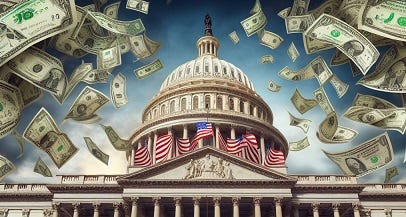U.S. Businesses Adapt to New Corporate Tax Reforms
Recent corporate tax reforms in the U.S. are reshaping business strategies, investment decisions, and economic growth. Companies are adapting to changes in tax rates, deductions, and compliance requirements, influencing the broader economy

The U.S. government has introduced significant corporate tax reforms aimed at adjusting business taxation, enhancing economic growth, and addressing fiscal challenges. These changes affect corporations of all sizes, influencing their financial strategies, operational decisions, and long-term investment planning.
With new tax regulations altering corporate rates, deductions, and reporting requirements, businesses across sectors are reassessing their financial plans. This article examines the key aspects of these reforms, their impact on U.S. businesses, and how corporations are adapting to the evolving tax landscape.
Key Changes in Corporate Tax Policies
1. Adjustments to Corporate Tax Rates
One of the most impactful changes in recent tax reforms is the adjustment in corporate tax rates. Lower corporate taxes can boost business investments, while potential increases may lead to cost-cutting strategies, such as restructuring or relocating resources.
2. Changes in Deductions and Incentives
Reforms have modified deductions on business expenses, including depreciation, research and development (R&D) incentives, and interest deductions. These adjustments aim to encourage investment in innovation, infrastructure, and sustainability.
3. Global Taxation and Foreign Profits
For multinational corporations, new rules on taxation of overseas profits and repatriation of earnings play a crucial role. U.S. businesses with international operations must navigate new compliance measures affecting tax liabilities and global financial planning.
4. Small Business Taxation Adjustments
Small businesses face unique changes, including modifications to pass-through entity taxation and small business deductions. These reforms could impact entrepreneurship, hiring decisions, and expansion strategies.
Impact on U.S. Businesses
1. Corporate Investment and Expansion
Lower tax rates and enhanced deductions can encourage corporations to invest in growth initiatives, such as hiring more employees, expanding facilities, and increasing R&D efforts. However, higher tax burdens may lead businesses to limit expansions and cut costs.
2. Financial Strategy Adjustments
Many companies are restructuring their financial strategies to optimize tax benefits. This includes reevaluating capital expenditures, adjusting dividend distributions, and exploring new investment vehicles.
3. Mergers, Acquisitions, and Restructuring
Changes in corporate taxation can affect merger and acquisition (M&A) activity. Some businesses may pursue restructuring or acquisitions to optimize tax advantages and enhance profitability.
4. Innovation and Sustainability Investments
Revised tax incentives for clean energy and technology innovation may drive more businesses to invest in renewable energy projects, sustainability efforts, and cutting-edge research.
How Businesses Are Adapting
Strategic Tax Planning: Companies are working with financial experts to navigate the complexities of new tax laws and optimize tax efficiency. Cost Management: Businesses are evaluating operational costs and expenses to mitigate the impact of potential tax increases. International Tax Compliance: Multinational firms are restructuring their international tax strategies to comply with global regulations while minimizing tax liabilities. Leveraging Tax Credits: Companies are capitalizing on available tax credits for R&D, green energy, and infrastructure developmentLatest In Media & marketing
Banking Magazine

Corporate America Faces Challenges Amid Global Supply Chain Disruptions
Investment

How Recent U.S. Investment Policies Affect Global Markets
Finance

Understanding U.S. Investment Policies and Their Impact
Money






